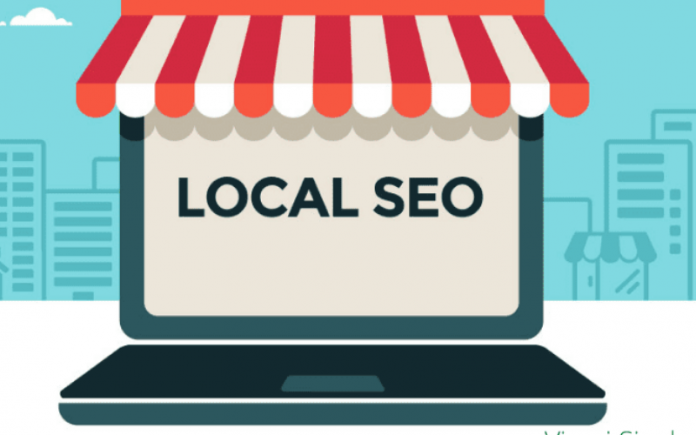Local SEO is the process of optimizing your business’s presence online to rank higher on search engines to boost traffic and conversions.
When people are looking for services or products to fulfill their needs, they often turn to local searches for assistance. If your business is not showing up in these searches, you might be missing out on valuable opportunities. Local search optimization is a tactic that will give your business the edge in ranking higher than your competitors. Local SEO differs from traditional SEO because it focuses on local keywords and phrases such as Sugar daddy in Liverpool or “plumber in Dallas.” These terms are more specific to businesses and what they offer, and usually result in higher conversion rates.
When searching for a local service, people tend to type in keywords that describe that service or business. For example, someone who is looking for an auto repair shop might search for ‘auto repair Los Angeles’ rather than ‘car repair.’
Why Local SEO?
Local SEO provides the potential to rank high in Google which will drive incoming traffic and increase sales and conversions for your business. According to Hubspot, 83% of consumers use local search engines to find local information.
Google is currently the most popular search engine out there; its closest competitor, Bing has a mere 14% of the market share. And while Google’s share is holding strong at 67%, Yahoo’s is dropping like a rock, from 19% to 11% in the past year. Both Bing and Yahoo are now powered by Google.
Getting on top of local search ranking can have a major impact on business growth as more people will see your business before they go to any other option. You could be losing out on large amounts of targeted traffic if you do not optimize your business for local searches.
Local Search Ranking Factors
You’ve probably heard of SEO, which is the process of optimizing your website for a better ranking on Google. A few years ago, traditional SEO was all that mattered. Now with Google focusing more and more on user experience, several other factors come into play when trying to rank high in local searches.
Website Authority
Google takes into consideration how reputable your website is when determining where to rank you in local searches. It uses the number of incoming links, quality of content, and other websites linking back to your site as a measure of its authority.
The type of business you are also plays a role in your ranking because Google tends to favor businesses that have been around for a longer period. They are more likely to be stable and trustworthy, which is what Google wants in local search results.
NAP (Name, Address, Phone) Accuracy
Having the correct name, address, and phone number can mean the difference between getting top rankings or falling to obscurity on search pages. All the data you include on your website needs to be consistent across all platforms.
For example, if you have five listings on Google MyBusiness with different address information, your NAP accuracy will drop. You need to make sure that these are all the same and up-to-date because content freshness also plays a role in search results!
Quality of Reviews
While having numerous reviews is generally good for your business, these should be of high quality. Google takes into consideration whether or not the review is relevant to your business and if it was helpful for other people. This will affect how highly they rank on search pages.
Geographic Location
The location of your business is a major ranking factor. Google tends to favor businesses that are closer to searchers rather than those in different states or even countries! And while this is a good thing for local SEO, it also means you need to make sure your business information is up-to-date and accurate on all platforms.
How to Optimize your Website for Local SEO?
As we mentioned earlier, local search rankings are determined in part by your website authority. To improve the rank of your business in local searches, you need to get other websites linking back to yours. In this way, Google views you as an authority and will boost your ranking accordingly!
To get links from other websites, you need to have a great website with good content. The following steps will help you make sure that your site is optimized for local SEO:
- Focus on creating high-quality and relevant content, especially about topics related to your industry. This creates a win-win scenario where people want to link back to you because they feel that your web page offers value while helping out search engines at the same time! Make it easy for people to share your content by having social sharing buttons. A video that describes how you can do this is at the bottom of this article.
- Make it easy for users to get in touch with you! This is an important part of any website, especially if you are a local business because they want to know more about your products or services before they buy them from you. You should have clear contact information on all pages and provide links back to your main service page so that users do not have to go through too many hoops just to contact you.
- Make use of images that are relevant to your industry or niche! These help search engines determine what your web page is all about without needing too many words (which can be difficult for them to comprehend).
- Make sure that your website looks good and is easy to navigate! Nobody likes a cluttered webpage because it makes it difficult for users to find the information they are looking for. Stick to one or two colors and do not use too many fonts otherwise, this will negatively affect how your page ranks in search results.
- If you have a big website with hundreds of pages, consider using breadcrumbs when linking back to other web pages on your site. This helps search engines know where certain pages fit into the structure of your site. A video explaining how breadcrumbs can help with your SEO is at the bottom of this article!
- Link out to other websites to build relationships. For example, if another company has a top-notch product that would be helpful to your customers, link back to them on your website. This allows their business to get more exposure and can potentially lead to sales for both parties!
- If you are using WordPress as the CMS for your site, many plugins will help with local SEO. Make sure you check out Yoast Local SEO which is easy to use and provides great support. It allows users to enter in their NAP information across all major platforms (Google MyBusiness, Facebook, etc) without having to do it manually or changing every webpage.
- Make sure that Google Analytics code is installed on each page of your website so that they can track how people are coming to your site and determine which pages they spend the most time on. This helps you learn more about your users so that you can tailor future content around their needs!
Conclusion
Besides the steps to boost your website authority, there are still other factors that contribute to where you rank in local search results. Location is important! If people are entering “coffee shops” into Google, they probably want to find one near their home or work. Make sure that your website comes up if people search for keywords related to your business and you will start getting more web traffic eventually!
The Article: Copy Here


